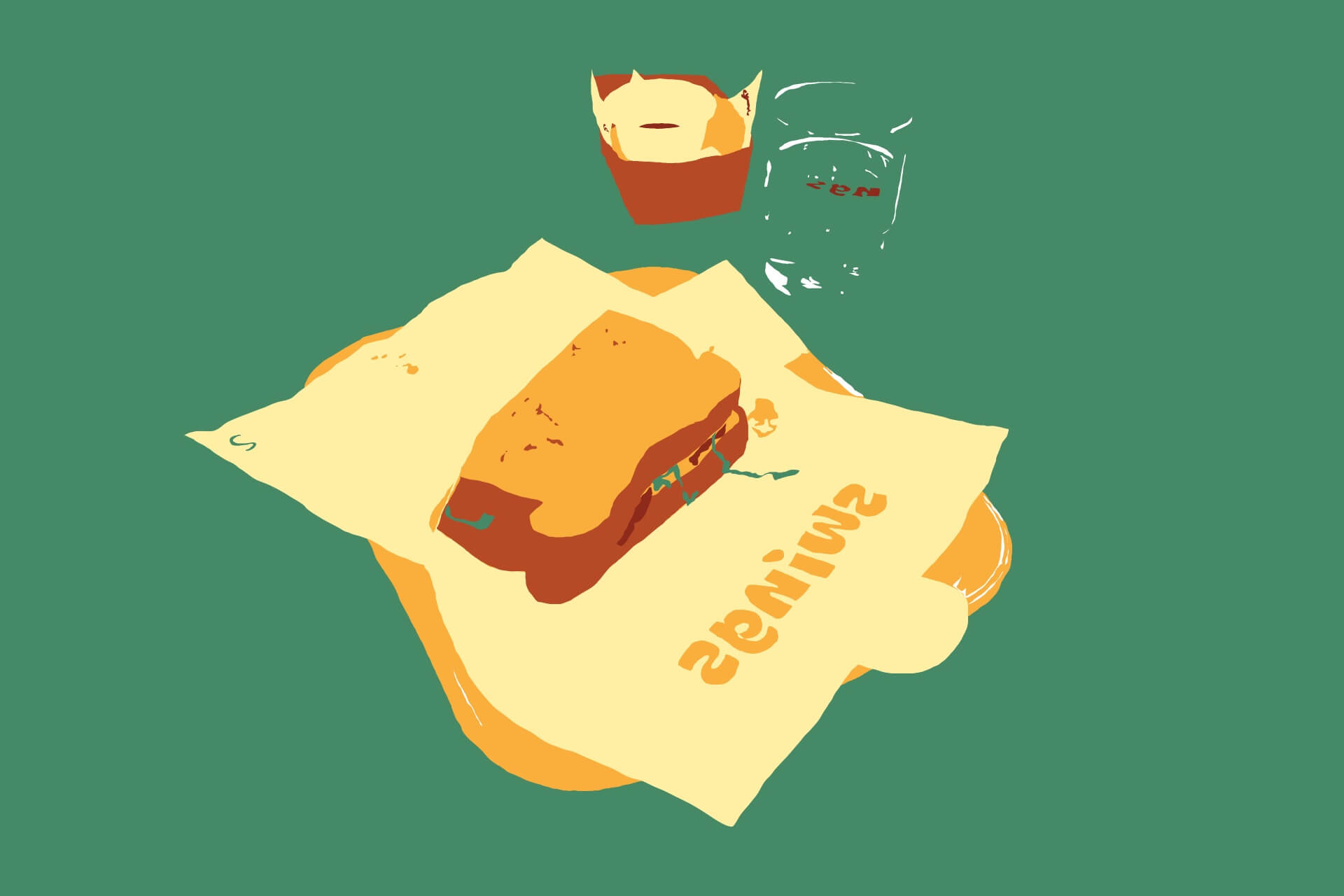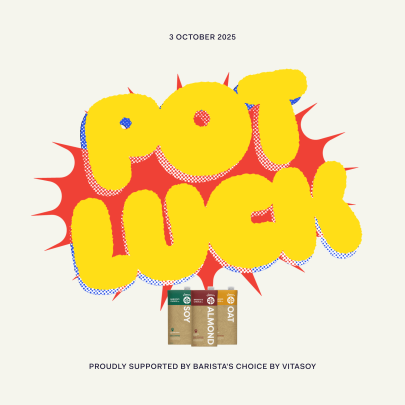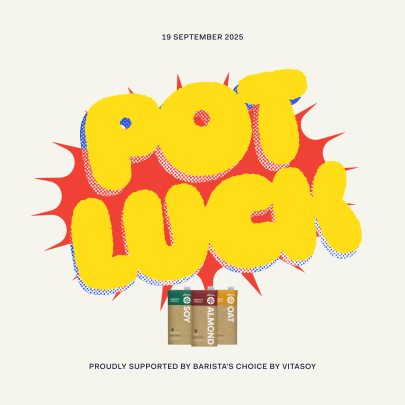Jul 22, 2022 Metro Eats
Hello all,
Every year when the World’s 50 Best Restaurants list comes out, someone will inevitably write something about how it’s all a bit shit. There will be accusations about its legitimacy – since a lot of the people who assemble the lists tend to be cut from the same cloth – and its arbitrariness, and about the criteria we evaluate restaurants by. It’s all been amplified this year due to the amount of restaurant investigations that have been published (as well as, let’s face it, the existence of The Bear).
Although I theoretically already understand all these reservations, I still read the articles, because I think it helps to keep me in check with my own listmaking. It’s my favourite time of the year, aka production period for Restaurant of the Year (ROTY), which, very conveniently, is also a list of 50. Like the Worlds 50, we construct the list with a panel of people, although our judging process is different (since we only have Auckland as a playground, as opposed to the whole world, we do actually send people out to physically eat at the restaurants for the purpose of judging), and, obviously, we have less people weighing in.
The headline of the article – whose interests do these rankings still serve? – is always a good starting point to orient my thinking on the ethos of Restaurant of The Year. That the list serves our readers, first and foremost. It’s a reminder that most people aren’t immersed in the politics and nuances of Auckland’s restaurant scene to the same extent as I am; that the purpose of Restaurant of the Year, alongside celebrating the successes and innovations of our local talent, is to, bottom line, ensure people get to eat good food. More so, rather than being antithetical to the goal, I find ROTY is actually an interesting vehicle to not only make sure our restaurant industry gets due recognition, but also explore, from within, the prescient question that article raises: what really makes a dining experience objectively good? What else should be evaluated, besides the food?
There is a responsibility that comes with all this, that we at Metro feel very keenly – so good luck to us, I guess, and good luck to all the restaurants. Coming soon.
— Jean
P.S. Entries for our Metro Sanpellegrino Young Chef Scholarship 2022 closes on 31 July. Enter! More details here.
P.P.S. Scroll down for an interview with MasterChef NZ winner Sam Low, in which I ask him how hard it was to keep it all a secret from me, feeling boxed in, and how he feels about the word “elevated”. He says things like, “I walked into this competition with an agenda,” which I find very cool.
Giveaway
We’re giving away a double pass to Bon Appétit with Stella Artois, which is a pop-up dining series at Karangahape Rd restaurant Atelier. Diners will be treated to a meal which focuses on French techniques and dishes while heroing New Zealand produce – plus two chalices of Stella Artois, of course. Tickets are usually $80 (valued at $130). To be in the draw to win, simply email me at jean@metromagazine.co.nz and let me know who you’d take with you. You’ll have to be available either on August 2 or August 9 and both be over 18.
What’s Good & What’s Happening
I went to try Gojo last night, which is in New Lynn and serves Ethiopian food. The vibe is very homey and welcoming; I really enjoyed just being served one gigantic platter to share among friends. It had a range of vegetarian and meaty options, with plenty of injera to pick everything up with. There’s something about the convivial nature of it all that made the food which is already pretty tasty with those spiced, sour flavours, taste even better.
I finally made my way to Swings, the new sandwich spot from the team behind Ockhee , and I have to say I’m very partial to a hash brown in between two pieces of white bread, which Swings most definitely delivered. I had the Swinger – which had bacon, egg, cheese, pickles and cabbage – with the hash, and it just verged on too much; but everything was needed for balance, imo. If I had my way, I’d make the sauce even spicier, but you know what, I can’t have it my way all the time and that’s probably for the better.
We had a lunch at Apero last week, my first time there during the daylight. It’s open for lunch on Fridays, something we never took advantage of, though I guess that was our mistake. It’s an ideal place to graze, with the long and narrow charcuterie platter and that fish entree… chef’s kiss.
Ragtag is popping up at Atomic in Kingsland today and tomorrow, with raw fish tostadas, gochu al pastor tacos and truffle quesadillas on the menu.
Reminder that the Checks party is on at East St Hall this Sunday.
What’s New
There is a new rooftop bar on top of Sudima called Sunset, which, in the grand tradition of rooftop bars, looks very luxurious and sleek. Also in the grand tradition of rooftop bars, it has a great view of the city, being located in the central city on Nelson St. It’s on the 10th floor.
Ben Bayly, alongside his wife Cara and business partners Chris Martin and Lucile Fortuna, are opening a new restaurant where the old Saxon + Parole was, in Commercial Bay. Called Origine , is aims to be a modern French restaurant that uses classic French cuisine but with a relaxed New Zealand atmosphere – an “original Kiwi way”. Bookings for the restaurant are now open, with service starting from 22 August.
There’s a new Indian restaurant in Mt Albert, on New North Rd, called Baahubali Pan Indian.
Interview: Sam Low
Sam Low won MasterChef NZ this past Sunday, beating his competition with a bowl of congee, a basket of steamed fish, and kombu ice cream. (There were many more elements involved, including things like soy milk emulsions and paua xo sauce). Throughout the season, pretty much everyone regarded Sam, who has previously won the NZ Barista Championships and is a creator of food-related recipes and adjacent content, as a frontrunner. Since I have previously tasted his food, I was convinced Sam would win – and I’m very pleased and very smug to say I was right.
The thing about Sam that set him apart from the other contestants, apart from his technical ability and creativity in the kitchen, was a compelling story which lent his food an extra layer of interest: a different way to access the dish, which I think is pretty important for an audience member who can’t actually eat any of the dishes presented on screen.
Here, I ask him some questions. Enjoy!
Let’s take you back to the first time I saw you after filming, when you opened the door of this very house we’re in now, and said hello to me with the full knowledge that you’d won MasterChef NZ. What was going through your mind then? Were you dying to tell me, or were you, like, happy to keep that knowledge to yourself for just a bit longer?
I hated that I had to keep a secret. It wasn’t my news to tell – I was in a weird middle ground. You know, I had this great celebratory news that I couldn’t share with my closest. It is genuinely that sensation of coming out again – like, that fear of keeping something to myself that I’d get in trouble for, but desperately wanting the relief of it being done.
It was odd. I just wanted to avoid any possible questions that could lead to the result… I was so close to letting it slip.
Cooking in a format like this is so incredibly different from cooking in any other context. That’s why I love watching shows like Top Chef – even with chefs at the top of their game, you can really tell when they’ve been forced out of their comfort zone. Can you tell me what it’s like to be given a brief and only having a few moments to come up with a concept? Are you kind of thinking about all the things you’ve cooked before, that could work, but with a bit of tweaking? Or are you all about doing something completely new and different on the fly?
I walked into this competition with an agenda. I was trying to cook food that I felt was political. What that means is representing a culture, and a story that could be shared on mainstream media that normally wouldn’t be highlighted. Cooking food that represents who I am on primetime television, with a face like mine – that’s political.
If a challenge presented itself where I was quite removed from access to cooking from my memory, well, that was when I genuinely struggled the most. You could see that in the mystery box challenge, when I didn’t have an Asian pantry. The food was technically executed well, and that’s it. Food like that to me is like dead art. It’s creating for the sake of creating.
When I was presented with those types of challenges, I just wanted to make it to the next day. I knew I was technically quite strong, based on my observations with the rest of the contestants, so I knew if I just executed something well, I’d go into the next round.
Were you ever afraid of being boxed in? You see how in shows like MasterChef Australia, when a contestant regularly cooks dumplings, or curry, for example, there’s often some weird public backlash to this – as if having a specialty is a bad thing.
I think my food isn’t traditional… It’s authentic to me, and my lived experience. You can’t really compare my food to anyone else’s culture. Even though I’m cooking Chinese food, it would be a very different menu for every Kiwi East-Asian. I wasn’t afraid of being boxed in, because I’m not cooking food that can be compared to anyone else.
My lived experience encompasses everything: food exposure, upbringing, even my personal journey of coming out recently, of hiding a lot of things and being ashamed of my culture growing up. I think the food reflects that – I think there’s a bold expression of creativity as a result. I can’t speak for all gays, but there’s a cliche of gays dressing extremely extravagently when they come out… For me, it’s like that, but with food.
Throughout the show, you’ve been really intentional with talking about your own personal struggles, and how they’ve related to your food journey today – why was it important for you to do that?
I think it goes back to being cast as a model minority. I had a lot of success in the coffee world, and that grew an audience. I had my head down and I was focusing on that – I did really well in it. But when it came down to come to terms with who I am as a person, I felt there was a responsibility to share that. You know, if I had that opportunity, to share, wouldn’t it just make everything more impactful, meaningful for me, and give me that purpose and drive? To reframe all the trauma that my younger self was going through. I was saying this was my coming of age; I was trying to make younger Sam try to forget the traumatic experiences.
Food is my chosen medium of art and expression, and if you ask any musician or dancer, they’d have the same response – to talk about their struggles and celebration and how that’s imparted into their art.
We’ve increasingly seen that these cooking shows have been very deliberate in spotlighting and highlighting the cuisine of its contestants, and it’s been interesting to see how that’s impacted on “demystifying” and changing the perceptions of what “good cooking” should look like. For example, it felt significant to me that you included rice in 2 out of 3 of your courses.
This is the food I want to eat in my dream restaurant. If I had the steamed fish without rice, I’d feel that’d be incomplete and lacking. If I had the power to complete that experience, why wouldn’t I do that? It’s all about the detail. I received positive praise for having refined and reserved flavours – and it shows that there is a place for all the details rather than going big and bold in cooking. While that’s celebrated in the Western context, East Asian cuisine is praised for subtlety and restraint. It’s about good cooking rather than just big flavour.
How do you feel about the word “elevated”? I noticed the judges used it a lot when evaluating your final meal, in the context of “elevated” Chinese cuisine. Do you think that’s accurate to what you were trying to achieve?
What they meant by elevate was I took something simple and humble but I’ve added more steps and techniques that I’ve assimilated from around me. I think that’s what they meant by elevating – I’m doing more to it, that showcases the ingredients to its highest level. I think we both know that the term elevated can be used in a problematic way when talking about food; like congee is not enough on its own. Congee itself is already perfect, I just made it different.
What was the preparation like between finding out you would be on the show, and flying out to Queenstown? How intensely did you practice your recipes, or work on new techniques? Is there anything that you were like “Yes, this feels MasterChef appropriate, I need to get on that ASAP.”
When I found out, I knew I had a month to prepare for the show. I obviously had a lack of experience with desserts and sweets. There was a lot of research on basic cake recipes, tart shells. I remember borrowing an ice cream machine from a friend, and that helped me right at the end. I really had to be more confident with baking. In terms of savoury, that was harder, because regardless of how much food knowledge you have, you have no idea what the judges would throw at you. You would go in with a handful of recipes that you could always adapt with… like a basic puree which you can swap with any vegetable.
Who was your favourite guest judge, and who would you most want to work under?
Michael Meredith. I think we share a lot of similar flavour profiles or mentality, in terms of building a concept or dish. It’s authentic fusion.
What do you personally think was your tastiest dish you made on the season?
I could happily eat a bowl of my Matariki challenge dumpling broth dish everyday. It’s exciting, it’s clean, it’s comforting, it’s delicious.
–
Metro Eats! delivers free to the finest emailboxes of Auckland every week(ish)!
Sign up to get it here






